#spanish lit
Text
These hands that are yours. They ache
To dig into your flesh
And open each blue vein
To hear your murmuring blood.
Federico García Lorca, from "Blood Wedding", Three Plays: Blood Wedding. Yerma, The Hous of Bernarda Alba (tr. Michael Dewell & Carmen Zapata)
719 notes
·
View notes
Text
You have seen and touched my broken heart and held it in your hands.
Sor Juana Inés De La Cruz, Sonnet 164
2 notes
·
View notes
Text
THE FINAL BLOG
LIST OF BOOKS READ:
“The Basque History of the World”, Mark Kurlanky
“The Shadow of the Wind”, Carlos Ruiz Zafon
In The Basque History of the World, by Mark Kurlansky, I learned firstly about basqueland. I didn’t even know it existed prior to opening the cover of the book. And looking back the title of the book is a neat play on words of the countries name. I learned that most of the basqueland where the basques resided where hill lands with some mountain ranges and rough terrain. Some settlements were even only accessible through some passages through mountains. The rough terrain made it difficult for Spain and other countries to take over basqueland. Which is part of the reason that basques lasted so long and even managed autonomy at one point.
The basque history is long and extensive. There are many ups and downs, wins and losses for the basques. Their technology advances and methods. The basques were once one of the top peoples in the world. With their techniques based off of viking techniques and improved upon. Basques were sought for their supply and superior ship building. Many tried to take over baqueland, and many failed. They didn’t understand why every advance they could defend so well. Because Basques are a proud people and they don’t take no for an answer. They fight until the end.
I learned a lot of basque culture and parts of what influenced it in the first place, like their food. I learned that basques are divided into two groups: the Western and eastern groups. The west part of Spain speaks the basque language, Euskara, and Spanish, as influenced by spain. The other half speaks the native tongue, but also speaks French, as they were influenced by spain. The basque culture heavily leans on the premise of respect and memory. They value family and honor. For example, they heavily honor the person, usually a man who “founded” the family name and created the reputation. They honor him by sticking the family name atop of their front door. As to remember the reason they are all there today. As for religion because of spanish influence, if you were not catholic you were pretty much damned and considered a traitor and oftentimes even killed.
In The Basque History of the world, I learned that life in the Basqueland was just like any other country that was controlled by another more powerful country. They went through persecution, wars, countless deaths, sadness, pride, anger. A Lot of the times they were victims to poverty and the only way out was to join their suppressor. For example many basques had to join the Spanish royal army, and eventually they had to fight and kill other basques, their own people. In The Shadow of The Wind, I learned that Life was a very mix of feeling on-edge and discovering the beauty of the world. On edge because of bad events or bad people. Like the chief of police, who was corrupt and mean. And discovering feelings for that girl whos moving away in a couple weeks. It must've been fun to be alive in this universe, the thrill of mystery leading you to a new corner to turn.
I think that there are a few things that I learned about myself from the year long project. Every week, every reading, the quotes, the blogs. I think I’ve learned I’m not one for reading non fiction, I like mystery and fantasy tangles into the book. It keeps it more fun and it’s an easier read for me. Honestly I used to be a big reader but now It’s difficult or me to just sit down and read. Although sometimes I am purely invested into the story. I just have the trouble taking the time to sit down and read. I
1 note
·
View note
Text
<<Lo más importante para cualquier artista es aprender a mirar. La poesía siempre nace de una mirada, porque los versos, las metáforas, los adjetivos precisos, las palabras mágicas, los juegos y los cambios de sentido son una forma especial de ver el mundo.
Hay gente que anda por la calle sin curiosidad, con los ojos cerrados y los oídos más duros que una piedra, como si no les interesara nada de lo que pasa a su alrededor. Algunas personas pueden vivir muchos años en un edificio sin enterarse de cómo se llama el perro del vecino, la hija del portero, el señor de la tienda de la esquina. Nunca saben el número de hormigueros que hay en el callejón, ni conocen los árboles del parque que tienen nidos. Cuando entran en una cafetería, no se quedan colgados de las conversaciones de la mesa de al lado. Y mira que son siempre entretenidas las mesas de al lado, con hombres y mujeres que cuentan historias rarísimas de sus familias y parejas de novios que se dan besos y se dicen palabras cursis, a veces demasiado cursis, mirándose a los ojos.
Es muy importante aprender a mirarse a los ojos y aprender a mirar el mundo. Porque tampoco basta con la curiosidad. Los artistas son unos tipos muy curiosos que han aprendido a mirar bien. Los poetas son unos curiosos que han aprendido a mirar bien y a contar lo que han visto con sus propios ojos. Los poetas también miran mucho las palabras que utilizan, pero sobre eso hablaremos luego»
Luís García Montero
☆☆☆☆☆☆☆☆☆☆☆☆☆
"The most important thing for any artist is to learn to look. Poetry always arises from a gaze because verses, metaphors, precise adjectives, magical words, games, and shifts in meaning are a special way of seeing the world. // There are people who walk down the street without curiosity, with their eyes closed and ears harder than a stone, as if they weren't interested in anything happening around them. Some people can live for many years in a building without knowing the neighbor's dog's name, the porter's daughter, or the corner store owner. They never know the number of ant hills in the alley or the trees in the park with nests. When they enter a café, they don't get caught up in the conversations at the next table. And let me tell you, the conversations at the next table are always entertaining, with men and women telling bizarre stories about their families and lovebirds kissing and saying cheesy words, sometimes too cheesy, while looking into each other's eyes. // It's very important to learn to look into each other's eyes and learn to look at the world. Because curiosity alone isn't enough. Artists are very curious individuals who have learned to look closely. Poets are curious people who have learned to look closely and to tell what they have seen with their own eyes. Poets also pay close attention to the words they use, but we'll talk about that later".
1 note
·
View note
Text
Cultural/ Social Themes: Honor
My internet (on my laptop) has been slow so if it looks a bit wonky, it’s because I published this on my phone :).
Unlike in English, the Spanish language has two concepts of honor. Honor is the valorization of your own proper person. On the other hand, Honra is the social opinion of others.(source) Do remember that honor and honra also relate to one’s own relation to your family. That is, your honor reflects not only your person, but your family’s standing. Honor is presented differently depending on your…
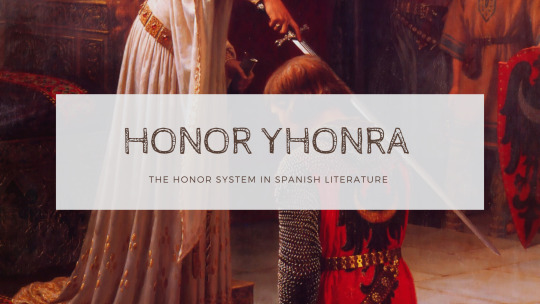
View On WordPress
1 note
·
View note
Quote
Wind sings in its whirling,
water murmurs going by,
unmoving stone keeps still.
Octavio Paz, “Wind, Water, Stone” (trans. Eliot Weinberger)
0 notes
Text

Clara Janés Nadal, tr. by Carol Thickstun & Louis Burne, from "I Don't Know,"
#lit#clara janes nadal#poetry#quote#words#poetry in translation#fragments#selections#spanish literature#excerpt#p
2K notes
·
View notes
Text
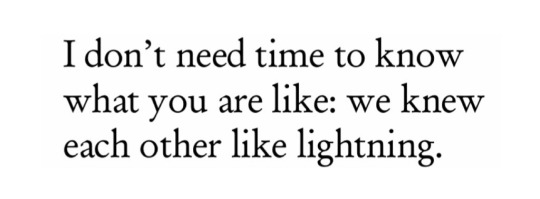
Pedro Salinas, tr. by Ruth Katz Crispin, from Memory in My Hands: The Love Poetry of Pedro Salinas; “The voice I owe to you”
[Text ID: “I don’t need time to know / what you are like: we knew / each other like lightning.”]
#pedro salinas#love#lightning#excerpts#writings#literature#poetry#fragments#selections#words#quotes#lit#typography#poetry collection#poetry in translation#spanish literature#spanish poetry
11K notes
·
View notes
Text
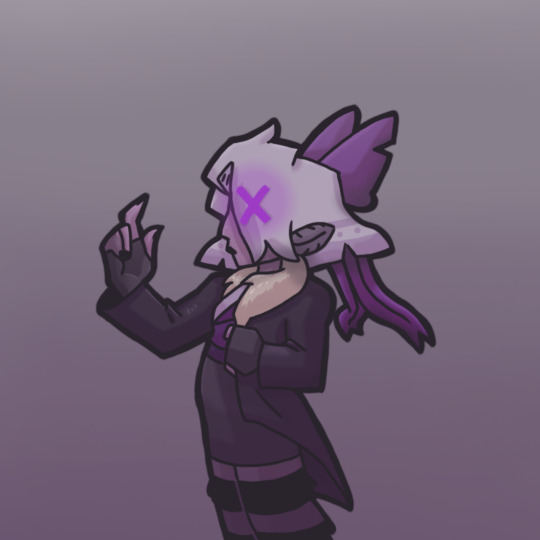

I just want them to be absolutely head over heels with eachother. No one sided simping in my hazbin hotel!
#hazbin hotel#hazbin hotel chaggie#hazbin hotel charlie#hazbin hotel vaggie#vaggie#charlie morningstar#hazbin art#i love love loooooove their canon relationship. but... cmon.... it feels so one sided i cant be the omlg one....#art#fanart#artists on tumblr#digital art#chaggie#rainbowmoth#varlie#hazbin redesign#hazbin hotel redesign#i made slight changes to vaggie and was goinf to for charlie but like. i got a bit lazy....#LET THEM BE SIMPS FOR E A C H O T H E R. RAAAHH 🦅🦅🏳️🌈🏳️🌈#anyway headcanon timeee eeee!!! STIMMINGGGGGGG#Charlie is the silly romantic type and Vaggie is the serious flirt#like charlie is definitely all lovey dovey and stuff in a serious way but she does it in a fun and goofy way ykno??#vaggie ks like. handing roses to her and coverinf her entire arm wirh kisses and whispering in spanish 💜💜#changed shading style. duno how good it is bur i like it so ill try to get used to this one moreee#uhhhh.... gave vaggie her jacket privileges back and made her hotel uniform purple again cuz#it wojld be another hint shes not from hell to have her be one of tbe omly ones withojt red on her (apart from angel who lit HAS to not)#vagina got her x eye priveleges back. its too iconic to take away... i tried bjt i couldnt 😔#CHARLIE BAS CJRLY HAIRRD thaaaats what i forgot fo say smh... its tbe loteral only change i made to kt 😭#anyway thats all i wanna yap abt have a gud day! 💜💜#tw suggestive
164 notes
·
View notes
Text
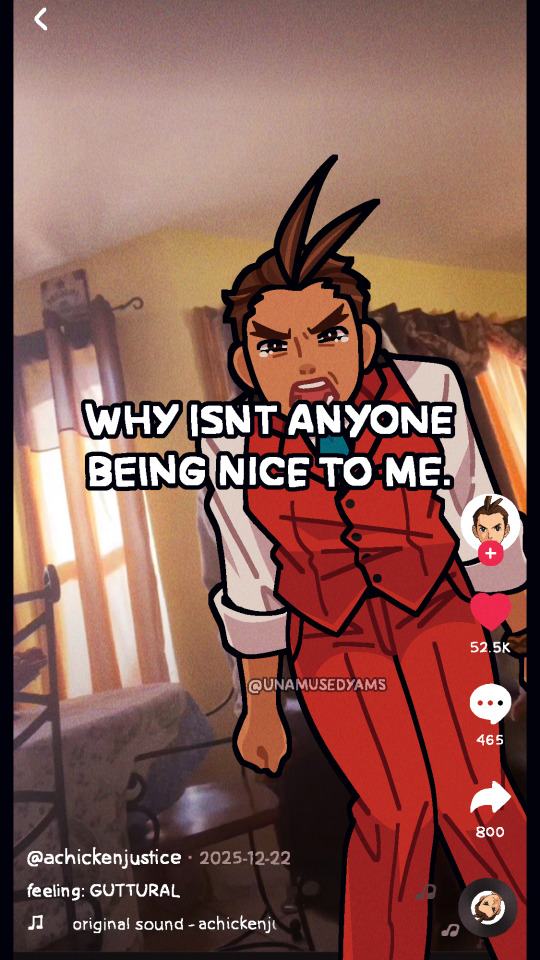
first polly fanart
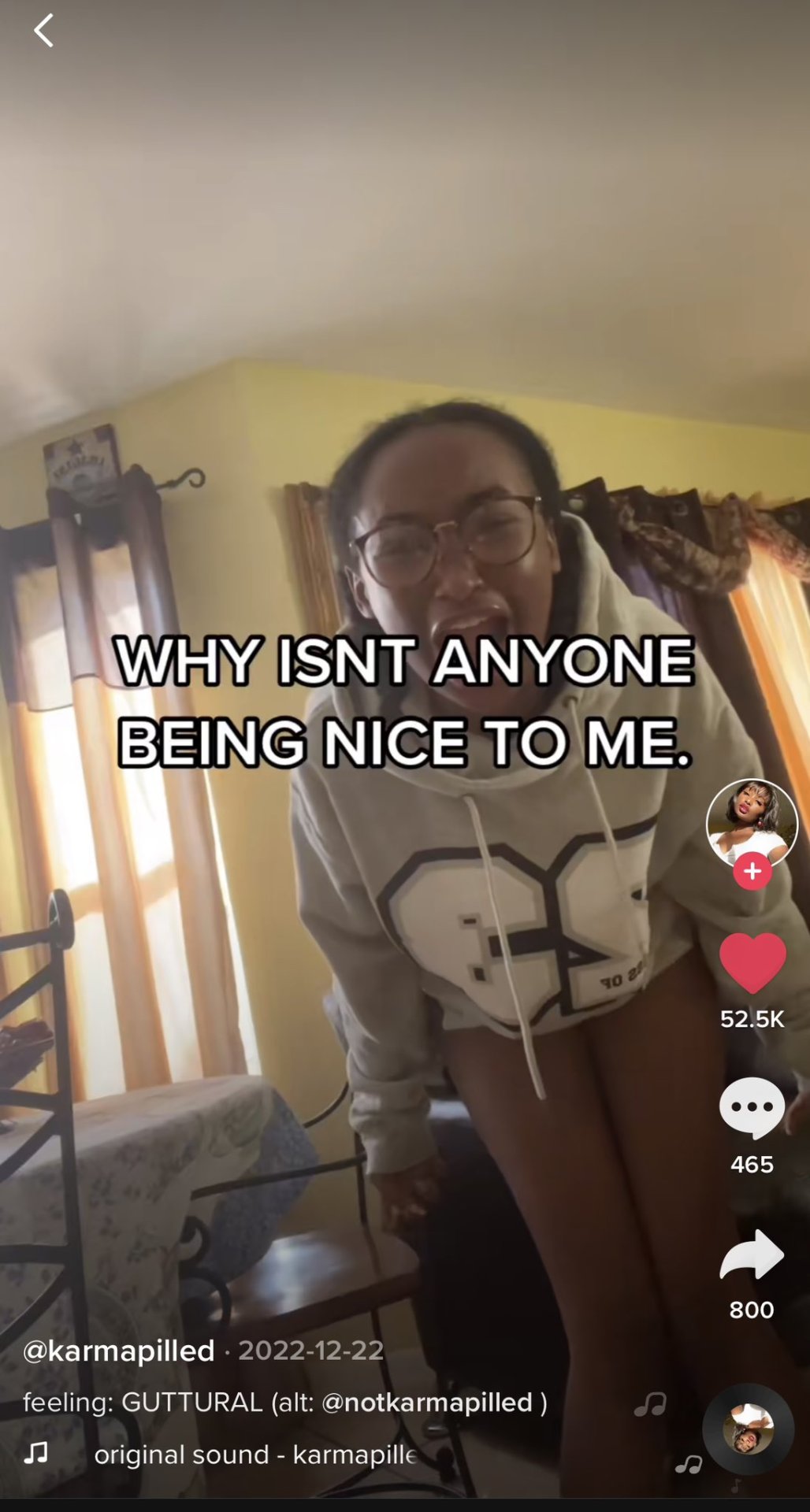
#ace attorney#apollo justice#aj aa#fanart#meme#username is based on a kid from high school who phonetically pronounced apollo as#''a poyo''#in english lit#(pollo = chicken in spanish)#yams art
1K notes
·
View notes
Text
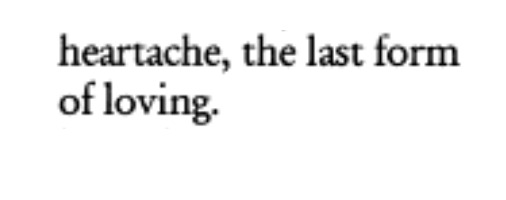
Pedro Salinas, excerpt from "The Voice I Owe to You (#63)", Memory in My Hands: The Love Poetry of Pedro Salinas (trans. Ruth Katz Crispin) [transcript in ALT]
#q#lit#quotes#poetry#pedro salinas#the voice i owe to you#memory in my hands#the aftermath of love#reading#spanish lit#m#x
3K notes
·
View notes
Text
It’s actually so funny that Jem canonically has no idea how eloquently he phrases things and is like Noo I’m not good with words 😪😓 and everyone around him is like. ??????? NO???
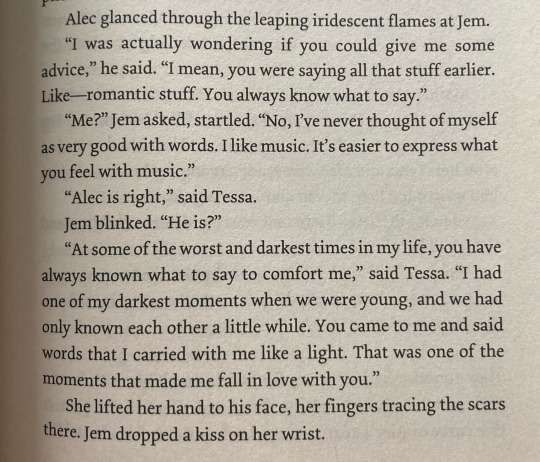
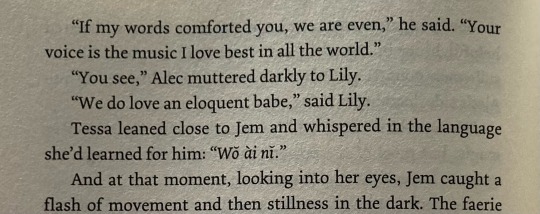
#“we do love an eloquent babe”😭#also im really glad its canon that he’s just oblivious to this bec ik will was the english lit bro but jem in clockwork princess being like#oh i’m bad at words 😔 and then delivering that masterpiece of a speech to tessa was wiiiiild#i offer you my life..i offer you my heart…yeah no jem that’s beautiful#jem carstairs#alec lightwood#tessa gray#jessa#gotsm#tsc#and the way he later translates in spanish and has ppl tearing up like 😑 u are so silly jem#also stan lily chen#tid
153 notes
·
View notes
Quote
I hope that you never, not even for one second, become a secondary character in your own story.
spanish teacher
#spanish teacher#motivation#quotes#poetry#literature#relationship quotes#writing#original#words#love#relationship#thoughts#lit#prose#spilled ink#inspiring quotes#life quotes#quoteoftheday#love quotes#poem#aesthetic
528 notes
·
View notes
Text
"...it occurred to me that between the covers of each of those books lay a boundless universe waiting to be discovered..."
--Carlos Ruiz Zafon, The Shadow of the Wind(6)
0 notes
Quote
I hope that you never, not even for one second, become a secondary character in your own story.
spanish teacher
#spanish teacher#motivation#quotes#poetry#literature#relationship quotes#writing#original#words#love#relationship#thoughts#lit#prose#spilled ink#inspiring quotes#life quotes#quoteoftheday#love quotes#poem#aesthetic
131 notes
·
View notes
Text
Poetics: Explaining Spanish Poetry
Sorry for the absence. I've been a bit under the weather.
In brief…
Poetry is a lyrical expression of intensity of feeling, thoughts, and ideology. Spanish poetry, unlike in English, is divided in arte menor and arte mayor. What does this mean? There’s going to be some math when counting the syllables in a poem (I’m sorry)
Mini Linguistics Corner
Unlike English, Spanish is a syllabic language. Meaning: the rhythm of the language is based on the…
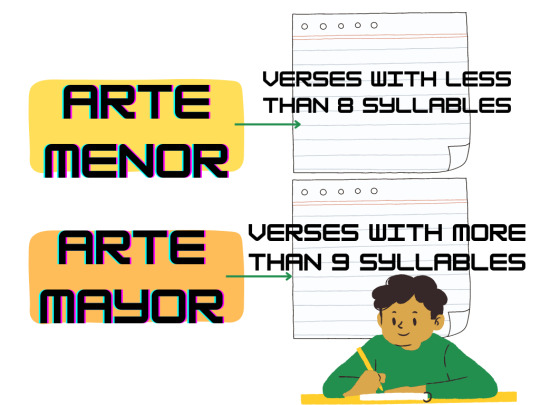
View On WordPress
0 notes